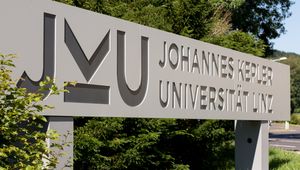Nearly all electrical devices contain (soft or hard) printed circuit boards (PCBs).

The problem is that these PCBs also create an enormous amount of electronic waste, an estimated 1.2 million tons of PCB waste a year. A new project at the Johannes Kepler University Linz aims to tackle the problem and the European Union has awarded the project with an ERC ‘Proof of Concept’ grant.
Although there are initial biodegradable solutions available for hard PCBs, there are no biodegradable solutions for flexible circuits - until now. Prof. Martin Kaltenbrunner, (project leader and head of the Department of Soft Matter Physics, and the JKU LIT Soft Materials Lab) notes: "The polymer carrier materials commonly used for flexible PCBs are not biodegradable and companies are often unable to afford the cost of recycling of PCBs."
He envisions a flexible printed circuit board substrate based on mushroom mycelium which would make the substrate sustainable and biodegradable, yet stable and perfect for circuitry. Materials like these could be disposed of in landfill sites, or be incinerated without releasing harmful substances.
Looking for Suitable Material
Based on Kaltenbrunner's "GEL-SYS" project (which was also funded by an ERC grant), Kaltenbrunner and his team are concentrating on the "MycoSub" project to develop soft electronic systems focusing strongly on biocompatible and biodegradable hydrogels. Kaltenbrunner added: "The ERC funding in particular has given us a great deal of freedom to conduct research, allowing us to try new things." These initial experiments soon resulted in examples of electronics on mycelium skin. However, in order to have a more lasting effect, the JKU researchers need to turn this promising approach into a product that PCB manufacturers could use. "We needed to create materials and processes that can be easily incorporated into the industrial process," says the physicist. As part of the "MycoSub" project, and in an effort to sustainably produce MycoSub-flexPCBs, he and his team are now investigating suitable materials and methods using mushrooms.
Kaltenbrunner hopes to contribute to creating a more sustainable future and added: "The additional EU funding is an enormous advantage for us, bringing us closer to our goal of reducing millions of tons of electronic waste in the future."
Applying Base-Knowledge Research to Support Commercial Purposes
JKU Rector Prof. Dr. Stefan Koch congratulated the team and remarked: "Research is not in and of itself. The JKU is committed to focusing on people and finding solutions to address global issues, particularly in these times of multiple crises. Naturally I am delighted to experience first-hand just how base-knowledge research at our university is contributing to important advancements. The ‘Proof of Concept’ project is a testament to just how internationally competitive and important our researchers’ work is."
The EU funds ERC grant holders with ‘Proof of Concept’ grants to explore the social and commercial benefit and potential of their research. The project will receive €150,000 in funding over an 18-month period.
 Go to JKU Homepage
Go to JKU Homepage














